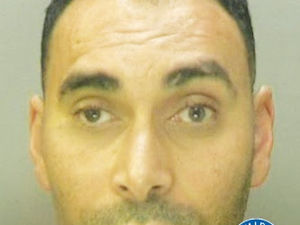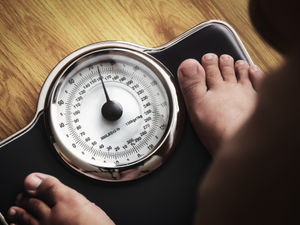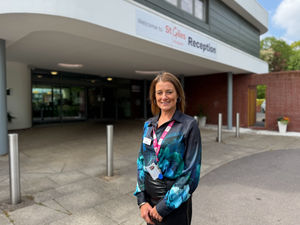'I thought that's the last time I'm going to see my family': Wolverhampton survivor helping find coronavirus cure
A Black Country man who was hospitalised with coronavirus is now helping to find a cure after donating his plasma – which has one of the highest antibodies of Asian donors across the UK.
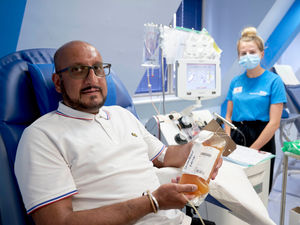
Rajeev Verma, from Wolverhampton, was hospitalised with breathing difficulties at the end of March and told that if his oxygen levels did not improve in 24 hours he would be put on a ventilator.
As the 52-year-old was taken off in the ambulance he looked at his crying family on their doorstep and thought it might be the last time he saw them.
Rajeev was discharged from hospital after a couple of days but it took him seven weeks to recover – and just as he got better his father-in-law died from coronavirus.
"I became ill on March 22, the day before lockdown," he said. "I was gardening and I felt really fatigued, I said to my wife Jyoti I'm not feeling too well.
"I started to have pains all over my body and the cough started coming in slowly.
"I phoned my GP and he said I think it's a chest infection. He prescribed antibiotics and they didn't work.
"I then was told to go to a GP surgery in All Saints and I was wheezing, my temperature was 38.9 degrees and I was hallucinating. My whole rib cage was hurting from coughing.
"He said to me 'you've got Covid-19' and prescribed stronger antibiotics but it wasn't until I went into hospital that they tested me.
"Then the symptoms started gathering pace. I was really, really tired and unable to walk.
"I started to have breathing difficulties so my wife phoned the ambulance.
"They put me on air and they did my blood pressure.
"I looked back at my family crying on the doorstep and thought that's the last time I'm going to see my wife and children.
"I was told if your oxygen level doesn't go up within 24 hours we're going to put you on a ventilator.
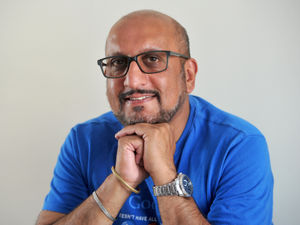
"I was on the verge of recording a voice note for my daughter as she's getting married next year.
"I didn't think of it as scary, I felt so tired, I lost six kilos.
"I came out of hospital after a couple of days."
It took Rajeev seven weeks to fully recover from coronavirus, and in that time he isolated from his family within their home. He said only his daughter Aleesha had symptoms, but they were mild.
"People think it's a joke, wearing a mask, but it is very real," he added.
"I got better and I was ready to go back to work then my father-in-law passed away from Covid-19, so we had to arrange his funeral, then I was ready to go back to work and I was made redundant."
The former healthcare facilities manager was approached by NHS Blood and Transplant (NHSBT) after he recovered and has now donated plasma five times.
He was told he has one of the highest antibody levels of any Asian donor so far.
People from Asian communities who have recovered from Covid-19 are more likely to have the antibody-rich plasma which can save lives, according to early analysis.
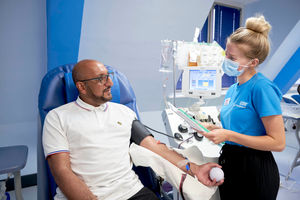
NHSBT is collecting convalescent plasma for a major coronavirus treatment trial, and if the trial is successful, it could be used in hospitals. The antibody-rich plasma of people who have recovered from Covid-19 can be transfused into people who are struggling to develop their own immune response.
Figures reported into the programme showed that Asian convalescent plasma donors were almost twice as likely to have high antibody levels as white donors. Sixty-three per cent of Asian donors met the threshold, compared to 36 per cent of white donors.
Rajeev said: “Covid-19 is very dangerous and it can attack anyone regardless of colour or creed. There are so many symptoms that you have to endure and fight against.
“Donating plasma was a new and pleasant experience, the nurses were very supporting and reassuring and the process took around 35mins. If I can help in the research and save someone's life with my donation, I would do it with great pleasure. It is better to give than to receive.
"They put a needle with three channels into your arm, they draw the blood, then it goes through a machine with separates blood and plasma and then the blood goes back in.
“I find that some people from the Asian community take a step back when you say you have had coronavirus. I am very open. I think there needs to be more awareness. I would very much support people talking more and feeling able to donate.”
Convalescent plasma is being collected at NHSBT’s 23 donor centres around the country including London, Birmingham, Manchester, Luton and Leeds, as well as in pop-up donor centres.
Convalescent plasma donation takes about 45 minutes and bodies usually replace the plasma donated in 24 to 48 hours.
NHS Blood and Transplant is appealing for people who have recovered from Covid-19 or the symptoms, and who live near one of its 23 donor centres, to offer to donate their plasma by calling 0300 123 23 23 or completing an online form via nhsbt.nhs.uk/how-you-can-help/convalescent-plasma-clinical-trial/

